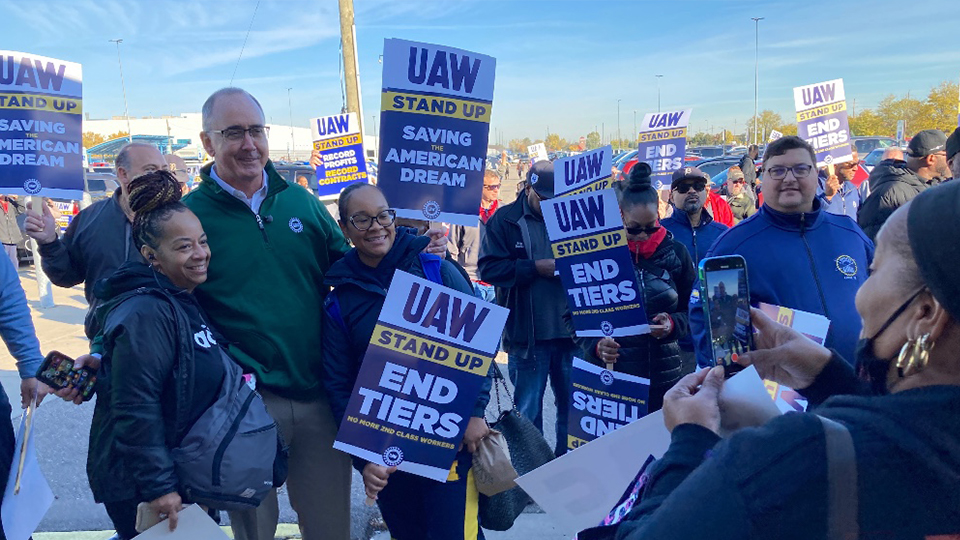UAW adds key Stellantis pickup truck plant to strikes
Subscriber Benefit
As a subscriber you can listen to articles at work, in the car, or while you work out. Subscribe Now
The United Auto Workers union has once again escalated its strikes against big Detroit automakers, this time adding a factory that makes Ram pickup trucks for Stellantis.
The union says that 6,800 members walked out Monday morning and shut down the Sterling Heights, Michigan, Assembly Plant, a huge profit center for the company.
The newest strike action comes just three days after union President Shawn Fain reported progress in talks with General Motors and Stellantis but said the companies will have to make better offers. No progress was reported with Ford, last week said it had the best offer of the three.
The union went on strike Sept. 15 at one assembly plant from each company. About 40,800 workers are now on strike against all three automakers. The strikes, now in their sixth week, cover seven assembly plants and 38 parts warehouses.
There have been no strikes at any Indiana locations, though Stellantis has made two major rounds of layoffs since the strike began. The first affected some 300 workers from two of the automaker’s Kokomo plants, but those employees have since been recalled.
Earlier this month, Stellantis announced 700 additional layoffs from its Kokomo Transmission and Kokomo Casting plants.
In a prepared statement, the union said that offers from Stellantis, formed in the 2021 merger of Fiat Chrysler and France’s PSA Groupe, lag Ford and GM despite the automaker having the most revenue and highest profits of the three.
Stellantis has the worst offer on cost of living raises, how fast workers move to the top of the pay scale, temporary worker pay, converting temps to full time, and other issues, the union said.
Messages were left Monday seeking comment from Stellantis.
Ram pickups are Stellantis’ most profitable vehicle, and the union says Sterling Heights is the company’s largest factory and its biggest moneymaker.
Under Fain, the union’s strategy has differed from past strikes, targeting specific plants from the companies based on progress at the bargaining table. It had been announcing the strikes on Fridays, but has recently switched to surprise announcements designed to catch the companies off guard.
